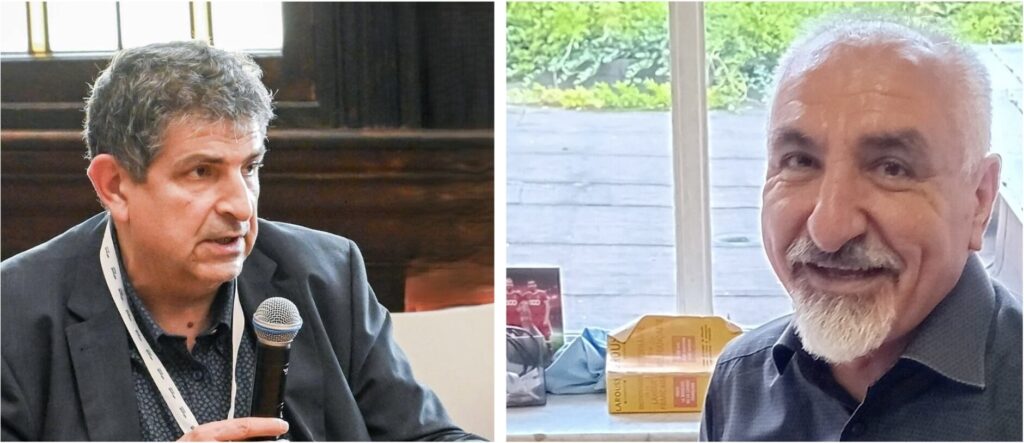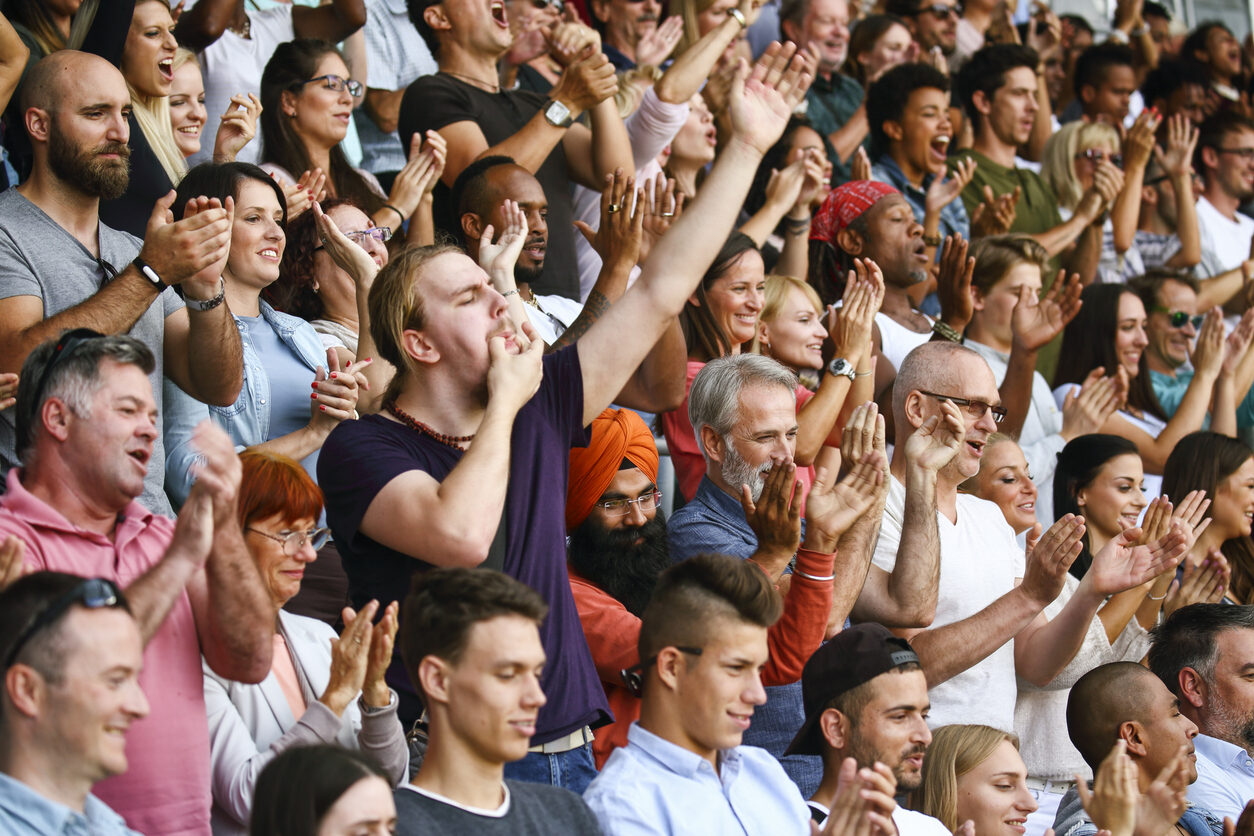Liège, Belgium, September 2025 – How to prevent violence in sport? This is a question that European local authorities have been working on for years in collaboration with the police, sports clubs and all those involved in urban security. We put the question to two specialists from the city of Liège (Belgium), which holds Efus’ presidency: Manuel Comeron, coordinator of the Urban Insecurity Prevention Plan (picture left), and Salomon Aktan, coordinator of Fan Coaching (picture right).
Efus and the city of Liège have collaborated over the years on numerous projects related to the prevention of violence in sport. This is an area where real progress has been made since tragedies such as those at the Heysel Stadium in Belgium (1985) and Hillsborough in England (1989). What role does local prevention play in improving safety in and around stadiums?

Manuel Comeron: Improving safety in sport is linked to a number of factors, including the fact that many European countries have adopted specific legislation to regulate this type of major event. On the ground, improvements have focused on stadium infrastructure, police intervention tactics and social prevention work with supporters, such as the Fan Coaching programme we run in Liège, which provides social support for hardcore supporters.
In terms of stadium infrastructure, the introduction of seating was a major turning point. Today, one ticket equals one person. In the 1980s, many stadiums had standing terraces and it was common practice to sell more tickets than there were seats, which led to disasters such as Hillsborough.
In terms of public order, crowd management has evolved towards a doctrine of de-escalation rather than confrontation, for example with the creation of the role of steward who plays a supervisory and calming role within the stadium among spectators.
Finally, the fan coaching movement emerged in the 1990s. This involves social prevention work directly with the at-risk public, i.e. the most radical supporters (those referred to as hooligans or ultras). Here, we work on the human factor and behaviour by replicating in the stadium the type of social and educational actions that we carry out in sensitive neighbourhoods. This is what we have been doing in Liège for nearly 35 years.
“Our membership of Efus enriches and inspires us not only in terms of violence prevention in sport, but also more broadly in our crime prevention policies and actions.”
How has membership of the European Forum inspired the City of Liège’s policy on preventing violence in sport?
Manuel Comeron: Our membership of Efus enriches and inspires us not only in terms of violence prevention in sport, but also more broadly in our crime prevention policy and actions. We have been members of Efus for 30 years and over the years we have participated in numerous meetings and discussions and led joint projects, particularly those funded by the European Union such as EUROFAN. We are fully in line with the approach advocated by Efus, which is that prevention must be integrated, i.e. thought out in a cross-cutting and multi-sectoral manner, with the principle that safety is a citizen’s right.
Salomon Aktan: In our fan coaching work, but also in crime prevention in the broader sense, we have been inspired by Efus’ work, such as GOAL and the European Prize for Social Integration through Sport project (note: see the list of Efus publications at the end of the article). These projects and, more generally, our membership of Efus give us the opportunity to visit other prevention schemes in European cities. It opens doors for us and allows us to show what we do; it’s a win-win situation.
The flip side of preventing violence in sport is preventing delinquency through sport…
Salomon Aktan: Indeed, our work has two components: socio-preventive support during Standard Liège football matches, and the organisation of sporting, cultural and educational activities.
The second part involves using the appeal of football to initiate social cohesion and community projects:
- The after-school support centre located in the stadium neighbourhood. (Volunteer teachers, who are supporters of the club, share their knowledge with local children twice a week.)
- Younited, aimed at people in precarious situations: it aims to reintegrate them through football. (Weekly training sessions at the club’s centre of excellence — Académie SL 16 Standard de Liège).
- Foot Citoyen, which enables young people from disadvantaged neighbourhoods in the city of Liège to meet various professional groups at the stadium, such as firefighters, community police officers, prison officers, bus drivers, municipal councillors, etc.
Although security in and around stadiums is much better than in the past, football continues to fuel strong tensions between certain supporters. How do you explain this and what can local authorities do to prevent it?
Manuel Comeron: Sporting competition generates rivalries and, since its inception, football, as a spectacle, has fuelled aggressive behaviour among some spectators, which sometimes escalates into group violence. Media coverage also brings a form of social recognition to the most radical groups, such as hooligans and ultras. A football stadium is a reflection of society, and there is violence in our society that is expressed there.
This also highlights the urgent need for structures for dialogue with and for young people. Across Europe, local authority budgets are increasingly tight, which has an impact on activities that strengthen social cohesion. However, I believe that local authorities, and public authorities more generally, must now strengthen social cohesion projects in partnership with actors on the ground, particularly sports and football clubs.
Cover photo: © iStock – tomazl
Efus has published several works on the prevention of violence in and through sport:
Euro 2000 Cities against Racism (Efus, 2000)
MATCH-SPORT – Analysing discriminatory violence in amateur sport – State-of-the-art in 7 countries. Make Amateur Sport Tolerant by Eliminating Intolerance and Discrimination (Efus, 2021)
MATCH-SPORT – Preserving amateur sport’s cohesive capacity by fighting discriminatory violence at the local level (Efus, 2021)
LOUD – When local authorities and young people from nine European cities mobilise against intolerance and extremism (Efus, 2021)
Preventing Discriminatory Violence at the Local Level: Practices and Recommendations (Efus, 2017)
European Practices for Social Integration through Sport (Efus, 2017)
Preventing Violence in Sport – A handbook for cities – GOAL (Efus, 2012)




